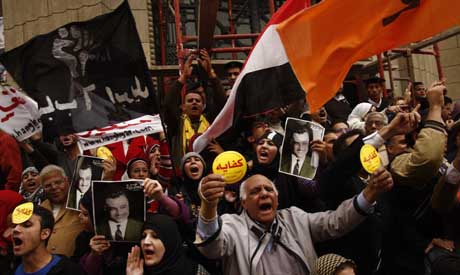Egypt Analysis: The Tragedy of The Opposition (Roccu)
 Thursday, December 30, 2010 at 7:41 |
Thursday, December 30, 2010 at 7:41 |  Scott Lucas in
Scott Lucas in  EA Middle East and Turkey,
EA Middle East and Turkey,  Middle East and Iran
Middle East and Iran  By its glaring inability to take these grievances seriously, the institutional opposition has condemned itself to continuing irrelevance in parliamentary life and has prevented a credible political articulation of the economic and social demands of both industrial and agricultural workers, ignoring that these movements could indeed constitute the much-needed popular support for a political opposition to the Mubarak regime.
By its glaring inability to take these grievances seriously, the institutional opposition has condemned itself to continuing irrelevance in parliamentary life and has prevented a credible political articulation of the economic and social demands of both industrial and agricultural workers, ignoring that these movements could indeed constitute the much-needed popular support for a political opposition to the Mubarak regime.
Thus, it is not the split between secular and religious opposition, but rather the one between institutional and popular oppositions that constitutes the foundation for the survival --- that's what it is: mere survival – of Egyptian authoritarianism.







